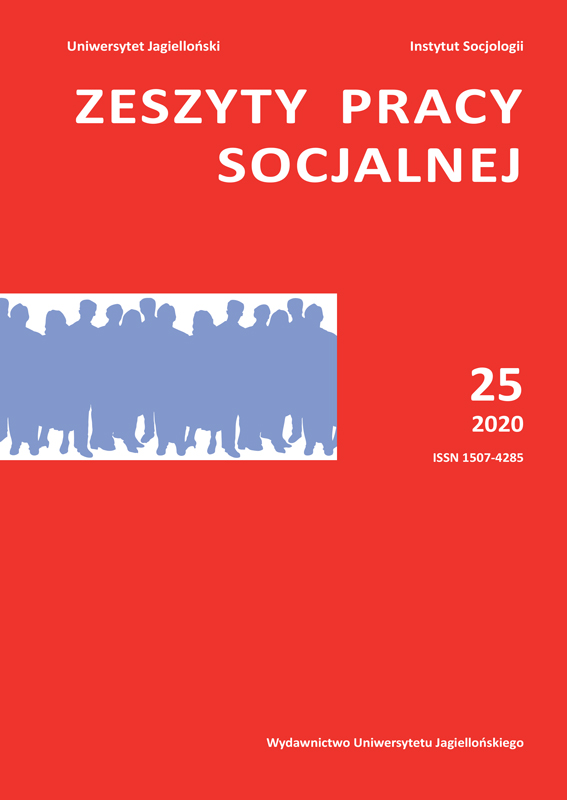Superwizja (w) pracy socjalnej – kilka refleksji teoretyczno-praktycznych
Supervision (in) of social work ‒ some theoretical and practical reflections
Author(s): Karolina GolonkaSubject(s): Social Sciences, Sociology
Published by: Wydawnictwo Uniwersytetu Jagiellońskiego
Keywords: social work; supervision
Summary/Abstract: Supervision has its origins as early as in the 19th century. In the first period, it involved supervising overseers or otherwise supervisors over the activities of volunteers who, among poor families, spread the pattern of correct (“healthy”) relationships. The task of supervisors was to control and advise volunteers. Since then, the notion of supervision has changed a little, but its meaning began to grow. In today’s understanding, we call supervision a process during which a social worker develops his or her interpersonal skills and learns how to deal methodically with a social worker (Domaradzki, Krzyszkowski i in. 2016: 17). In other words, it is a meeting of a person working in the aid sector with a certified supervisor in order to create space for reflection on the relationship between the supervisor and his client. Among the types of supervision we can distinguish: individual supervision (follow-up and participatory), programme and project supervision and group supervision (follow-up and participatory). In my paper I would like to describe the most important aspects related to supervision and show why it is an important element of social work that improves the quality of social assistance services.
Journal: Zeszyty Pracy Socjalnej
- Issue Year: 25/2020
- Issue No: 2
- Page Range: 107-110
- Page Count: 4
- Language: Polish

